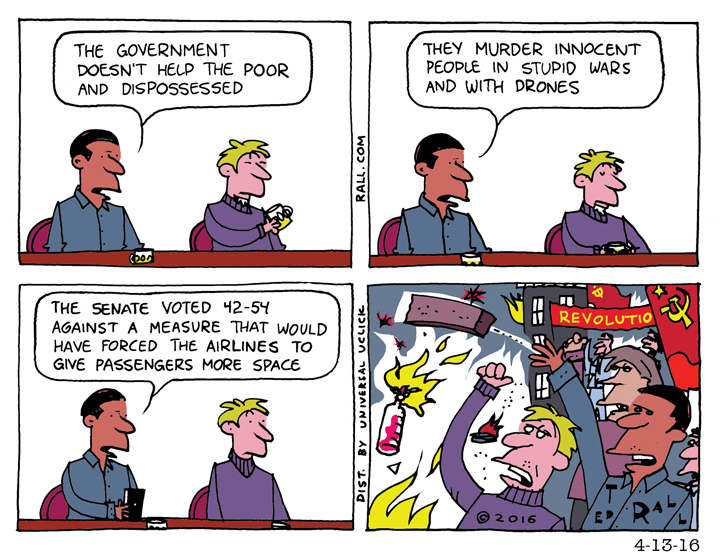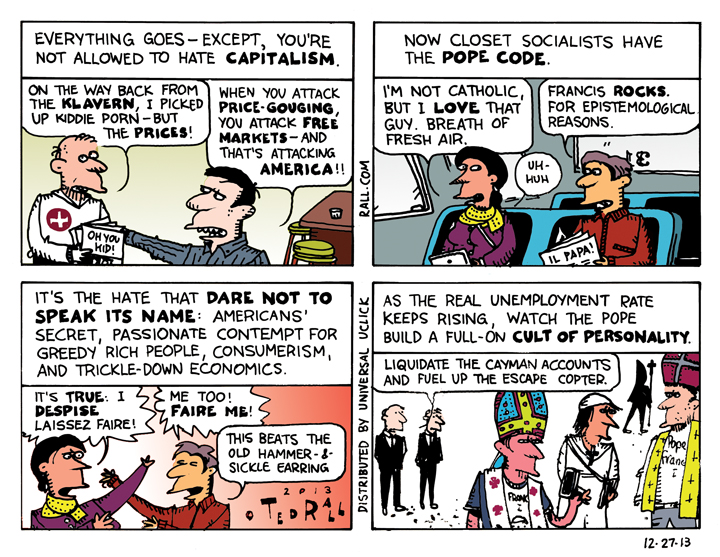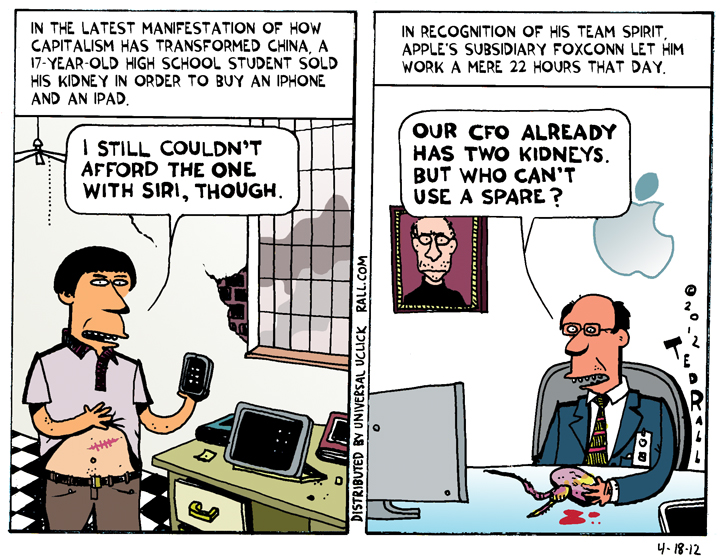![]() On Saturday, January 21st, three times as many people attended a demonstration against Trump as showed up the day before for his inauguration. Solidarity marches across the nation drew hundreds of thousands, perhaps a million, more.
On Saturday, January 21st, three times as many people attended a demonstration against Trump as showed up the day before for his inauguration. Solidarity marches across the nation drew hundreds of thousands, perhaps a million, more.
The turnout was impressive. It vexed the new president. But what did the Women’s March mean?
Despite what pundits said, the Women’s March was not a movement. Nor was it the beginning of a movement.
It was a moment: a show of hands: “I’m against Trump,” these women (and men) told the world. Question was, who/what do they want to replace him?
As Occupy Wall Street instigator Micah White pointed out, Women’s Marchers didn’t issue any demands, much less posit a desire to achieve political power. “Without a clear path from march to power, the protest is destined to be an ineffective feel-good spectacle adorned with pink pussy hats,” he warned. Like other protests of the last few decades, the Women’s March was a spasm, a spontaneous expression of disgust and outrage doomed to lead nowhere.
If you don’t demand anything, (or if you demand everything) how will you get it?
If you don’t pose a threat to the establishment, why should they feel scared?
At the risk of both mansplaining and leftsplaining, a show of hands does matter. Events like the Women’s March are significant because American politics is centered (pun intended) around the fiction that leftist political movements taken for granted in other nations — communism, socialism and left anarchism — have no presence at the ballot box or in the news media in the U.S. because American voters aren’t interested.
Moments like Saturday prove that’s a lie.
The New Left was the last organized left-wing mass movement in American history. Since the organized Left collapsed in the early 1970s, we’ve seen other moments like Saturday, indications that there are Americans, tens of millions of them, whose politics fall to the left of the fake-left Democratic party and the lockstep center-right corporate media apparatus that props up it and its “rival” Republican brand. Signs that this Left-in-waiting really exists belie the party line that there’s no market for hammers-and-sickles in the good ol’ U.S.A.
Even during the somnolent 1980s, hundreds of thousands showed up to protest Reagan at demonstrations like Solidarity Day. There were violent, effective eco-terrorist attacks and anti-globalization/WTO protests like the Battle of Seattle in the 1990s. Millions marched against the 2003 invasion of Iraq. This decade brought us Occupy Wall Street and Bernie Sanders’ surprisingly popular presidential primary challenge, and polls that find that 37% of Americans would get rid of capitalism — the economic system we’re constantly being told is more sacred and popular than Jesus, mom and apple frappuccino.
These political impulses — opposition to war and militarism, fighting job-exporting free-trade agreements and suspicion of unfettered capitalism — have no place in the Democratic or Republican parties. To the contrary: war, free trade and letting business run wild are nastily bipartisan.
So more than a third of Americans find nothing of interest to buy in the American marketplace of political ideas. That’s a vast untapped pool of potential “customers.” These people — I’d say voters, but many of them don’t bother to vote because they hate both parties — represent an inefficiency in the market. Moments like Occupy, Bernie and the Women’s March remind us of the existence of this Left-in-waiting. Someday, obviously, someone or someones will build an organization that attracts America’s long-ignored leftists and channels their energies into something powerful enough to achieve power and smart enough to govern.
Until then, the real left will be co-opted by the Democrats.
Which is what happened to the Women’s March.
To be sure, many Women’s Marchers were Hillary Clinton Democrats. The “Love Trumps Hate” signs, hand-lettered rather than printed by the DNC as they were during the fall campaign, and the Hillary buttons, evidenced that. Yet many more of the demonstrators were Bernie Sanders progressives, socialists and communists who want to see radical change in society and the economy — and these good leftists (a third of the country, most of the left overall) allowed themselves to go unrepresented.
A good indication that the Women’s March got co-opted into a Democratic boo-hoo Hillary/Cory Booker-in-2020 pep rally was that the speakers were limited to celebrity millionaire liberal Democrats like Michael Moore, Ashley Judd and Gloria Steinem and defanged ex-radicals like Angela Davis. Had this been a militant action (i.e., one that might frighten Trump and the GOP), or a coalition of liberals who welcomed and respected their leftist allies rather than merely wanting to vampirize their righteous anger and energy into midterm votes, the roster of speakers would have included people calling for revolutionary change and action outside of the existing system. There would also have been some radical activists you’d never heard of who do important work.
Celebrity liberalism and pleas to vote Democratic are where the Left goes to die.
No wonder the Women’s March was doomed to join the list of fruitless liberal marches! Because they’re Democrats, none of the speakers suggested scrapping the whole sick system of systemized poverty, industrialized prisons, war and slave labor altogether. Instead marchers got a washed-up documentary filmmaker urging them to memorize a phone number they could use to call Congress because, yeah, that’s going to do so much good, especially these days with Republicans in charge of everything.
Still, despite the Democratic BS, those huge crowds were glorious. They showed up, they were heard, they hint at the better country we could have.
May they soon get the radical, genuine political movement they and the world deserve.
(Ted Rall is author of “Trump: A Graphic Biography,” an examination of the life of the Republican presidential nominee in comics form. You can support Ted’s hard-hitting political cartoons and columns and see his work first by sponsoring his work on Patreon.)


 When it comes to politics, Americans are idiots.
When it comes to politics, Americans are idiots.


